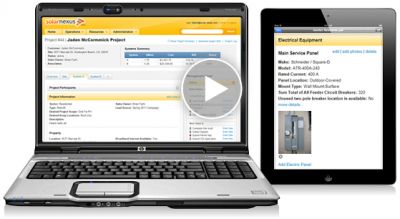Solar best practices may benefit from new SolarNexus NABCEP partnership

The North American Board of Certified Energy Practitioners (NABCEP) has partnered with
solar software company SolarNexus in an attempt to help streamline certain NABCEP certification processes and discounts on SolarNexus’ services. The future of the partnership could result in codeveloping best practices for solar contractors.
NABCEP offers certification for solar installers and salespeople across the U.S. The organization has developed quality measures for individuals on both sides of solar contractors’ business and now is developing a new certification process under which contractors can apply as a whole company rather than a single installers, said SolarNexus Vice President of Marketing and Business Development Brain Farhi. Under the partnership SolarNexus will offer a streamlined way for contractors apply for NABCEP’s new Company Accreditation standard.
SolarNexus, for its part, offers a software package for solar installer companies that allow them to coordinate the installation process across offices and employees, according to Farhi. “We help them manage it so they could get through installing systems more quickly.…So they do more with less cost.” For instance, a contractor could pull permits at a local office while an installer is in field, allowing the installer to know when they can move ahead on a project.
The tool uses a series of milestones for each project. The milestones start with sales department at a company and follow-through to when a project is completed. The tool can also include operations and maintenance through routine mechanisms. “It’s all web-based and can be done from an iPad,” Farhi said.
The company also includes local information in the product, including incentive programs ranging from federal to local levels and utility rate information. That can help consumers better understand how much a system will cost them and how much it will benefit them.
In the future the relationship could result in developing standards, according to Fehri. “As we have this relationship, we will look at each other to see how we can create best practices. But that’s down the road. That’s the type of thing we’re looking for from both sides,” he said.



